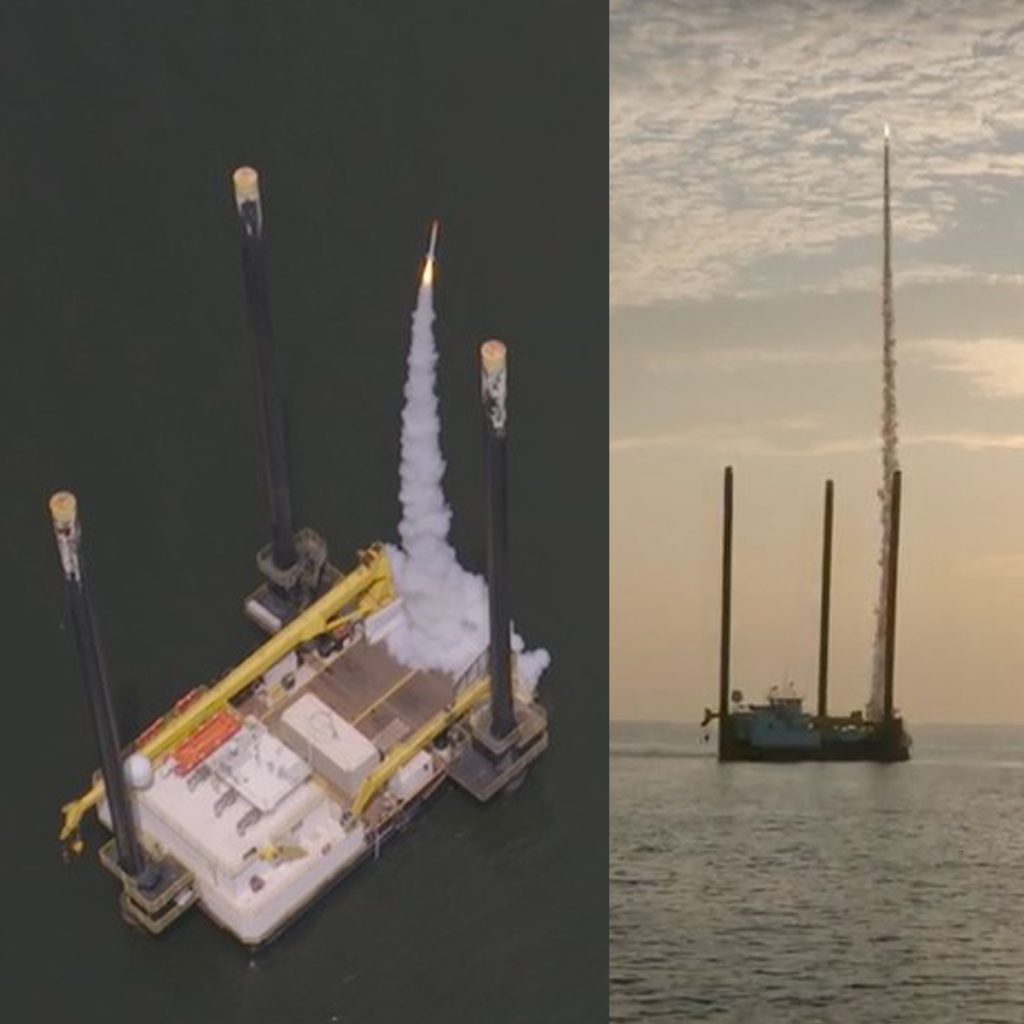
The Spaceport Company, a pioneering player in the space industry composed of launch system and maritime experts, has received a significant boost in funding from the Department of Defense to develop mobile sea-based launch platforms.
The company secured a substantial investment of $1.5 million from the National Security Innovation Capital (NSIC) program, aimed at supporting early-stage companies working on technologies with critical national security applications.
“We are thrilled and honored to have been selected by NSIC for this groundbreaking project,” Tom Marotta, CEO of The Spaceport Company, said in a company news release. “Our team is excited to leverage our expertise in space infrastructure development to design and develop a mobile sea-based spaceport that will provide novel capabilities as well as support the continued growth of the commercial launch industry. By investing in advanced space launch infrastructure, NSIC is actively fostering a resilient, responsive, and forward-thinking national defense apparatus that is equipped to meet the challenges of the 21st century.”
The NSIC program was established to address the funding challenges faced by promising American startups in securing capital for projects vital to national security. With a total allocation of $35 million, the program seeks to bridge the gap between innovative startups and trusted domestic sources of funding.
The Spaceport Company’s focus lies in the development of mobile sea-based launch platforms capable of hosting launches of small rockets from offshore locations. By leveraging these platforms, the company aims to alleviate congestion at traditional spaceports and provide a more flexible and agile solution for accessing space.

The advantages offered by such platforms include enhanced launch flexibility, reduced turnaround times, and operational versatility touts the company.
In May, The Spaceport Company successfully conducted a demonstration of its concept, showcasing the viability and potential of sea-based launches as a reliable alternative to land-based infrastructure.
The injection of $1.5 million from the NSIC program provides The Spaceport Company with financial support to further refine and advance its mobile sea-based launch platforms.
This funding infusion is expected to be used to expedite research and development efforts, facilitate additional testing, and accelerate the company’s realization of its vision for the future of space launches according to the company.
The Defense Department’s investment in these types of technologies signals the strategic importance and intent of ensuring a resilient and robust national security infrastructure in the space domain. Launching from mobile sea-based platforms could enhance the United States’ readiness and flexibility in responding to emerging threats, supporting satellite deployment for reconnaissance, communications, and other defense-related missions.
Funding provided by the NSIC program can be seen as the government’s recognition of the pivotal role played by startups and early-stage companies in driving innovation, pushing
technological boundaries, reinforcing national security capabilities, and fostering forward-thinking space pioneers.
As The Spaceport Company advances its mobile sea-based launch platforms with the backing of the Defense Department, this investment represents a significant stride toward alternative space launch infrastructures – an essential component in our ongoing exploration of space.
FTC: We use income earning auto affiliate links. More.

Comments